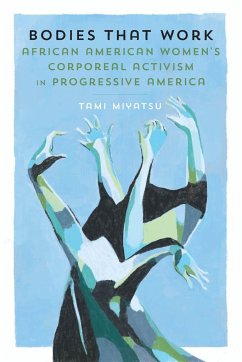Bodies That Work describes the redefinition of the invisible, fragmented, and commodified African American female body. In Progressive America, black women began to use their bodies in new ways and ventured into professions in which they had typically not been represented. They were bodies that worked-that labored, functioned, and achieved in collective empowerment and that overcame racial, ethnic, and class divides and grappled with the ideas and values of political, financial, and intellectual leadership, thereby dispelling the ingrained stereotypes of womanhood associated with slavery. Based on archival materials and historical documents, Bodies That Work examines four women who reinterpreted and reorganized the historically divided black female body and positioned it within the body politic: Sarah Breedlove Walker, or Madam C.J. Walker (1867-1919), an entrepreneur; Emma Azalia Hackley (1867-1922), an opera singer; Meta Warrick Fuller (1877-1968), a sculptor; and Josephine Baker (1906-1975), an international performer. Each reshaped a different part of the female body: the hair (Walker), the womb and hands (Fuller), the vocal cords (Hackley), and the torso (Baker), all of which had been denigrated during slavery and which continued to be devalued by white patriarchy in their time. Alleviating racial and gender prejudices through their work, these women provided alternative images of black womanhood. The book's focus on individual body parts inspires new insights within race and gender studies by visualizing the processes by which women lost/gained autonomy, aspiration, and leadership and demonstrating how the black female body was made (in)visible in the body politic.








